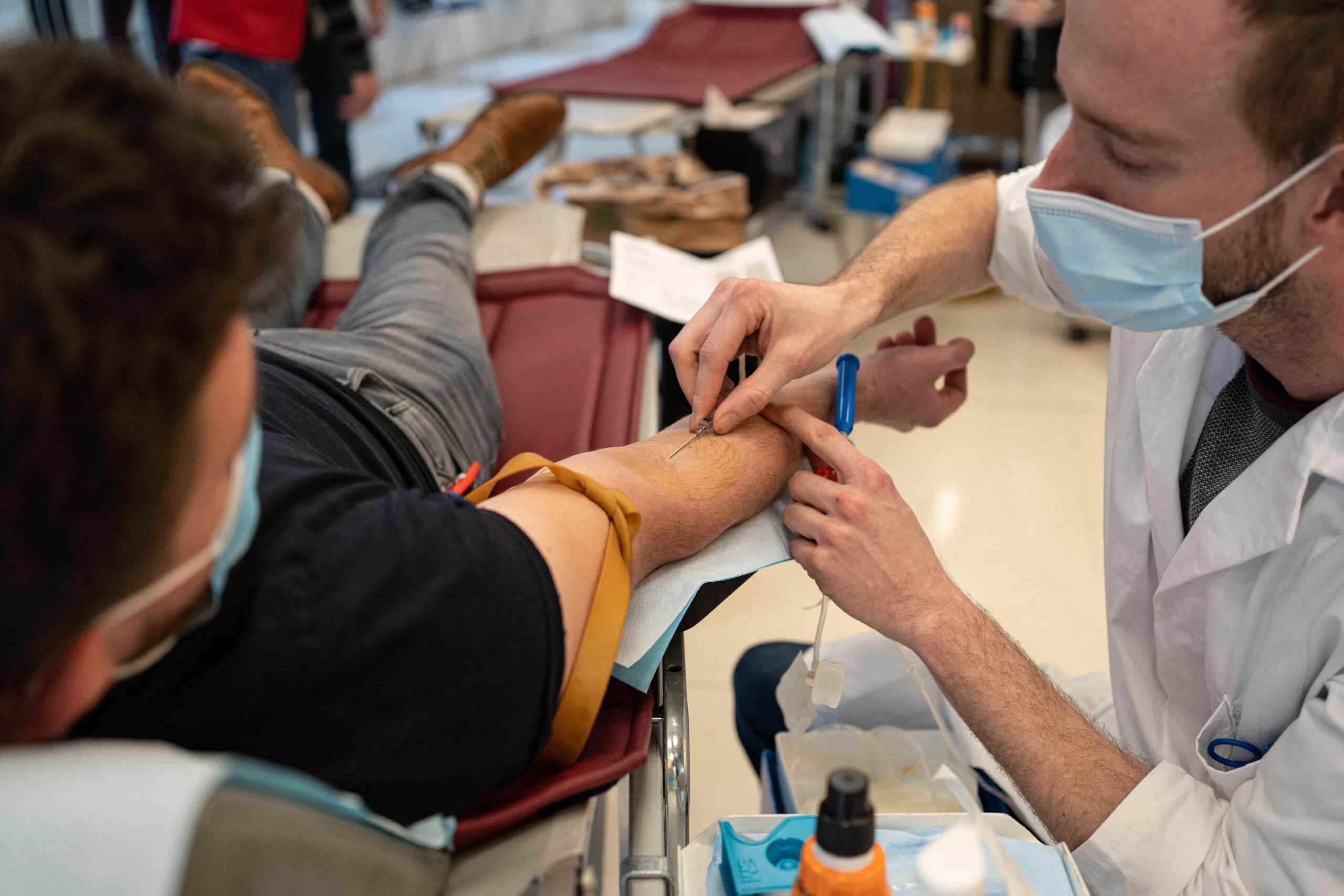Austria has become the latest country to end discriminatory policies banning LGBTQ+ people from donating blood, following a declaration from its health ministry. Johannes Rauch, Austria’s federal minister of social affairs, health, care and consumer protection, announced on May 20 that Austria would be lifting its longtime restrictions on queer and trans blood donations.
“We are putting an end to discrimination from another age,” Rauch said in a statement to the Agence France Presse. “If someone wants to help by donating, there is no reason why they should be prevented from doing so because of their sexual orientation or gender identity.”
In December 2019, the country replaced a lifetime deferral on blood donations from these populations with a policy stipulating that queer men could give blood if they had remained abstinent for 12 months prior to donation. The updated guidelines were still a de facto ban—as the majority of gay and bisexual men remain sexually active throughout their lives.
The new policy abandons those rules in favour of a deferral for all donors who have had sexual intercourse with more than three partners over the past three months. This includes both queer and heterosexual donors, as all individuals will be held to the same assessment of risk.
Trans and non-binary Austrians will also be permitted to donate blood for the first time. While gay and bisexual men were able to donate if they refrained from sexual intercourse, these groups were still banned entirely.
LGBTQ+ advocacy groups and public health organizations hailed the changes as an “important step.”
“Together with many other organizations, we have been drawing attention to the fact that blood donation must be based on individual risk behaviour of donors, and not on the fact that groups are excluded on the basis of their sexual orientation or identity as before,” said Andrea Brunner, managing director of AIDS Hilfe Wien (AIDS Help Vienna), in a press release.
Ann-Sophie Otte, chairwoman of HOSI Vienna, added that “years of pressure” on the part of queer and trans activists led to these milestone reforms.
HOSI Vienna, Austria’s oldest LGBTQ+ advocacy organization, is also calling on the country’s government to implement policies that ensure “discrimination cannot be continued through the back door of the blood donation centres.” In a May 20 tweet, the group called on Rauch to include an “explicit ban on discrimination” in the draft regulation currently being prepared for consideration.
Lawmakers are expected to review the draft over the summer, and the government has signalled that the new policies will be officially implemented in the fall. The new regulation is unlikely to be blocked, as the move has reportedly won bipartisan support from members of the conservative Austrian People’s Party.
The announcement has made Austria just the most recent country to ease outmoded restrictions discriminating against LGBTQ+ blood donors, many of which date back to the height of the HIV/AIDS crisis in the 1980s. A policy unveiled by the Canadian Blood Services in April allows gay and bisexual donors to give blood as long as they have refrained from anal intercourse with mulitple or new sexual partners within the past three months.
Canada’s policy was met with criticism from some LGBTQ+ advocates for continuing to target the way that many queer men engage in sexual intercourse, as anal sex is less common among heterosexual partners.
Similarly loosened restrictions in countries like New Zealand, the United Kingdom and the United States have been met with similarly mixed reactions. U.K. policies allowed gay and bisexual men to donate if they’ve been in a monogamous relationship for the past three months. New Zealand and the U.S. shortened their deferral periods for queer male donors to three months from the last instance of same-sex sexual contact.
More than 30 countries allow gay and bisexual men to give blood without facing unique restrictions on their donations. These countries include Albania, Brazil, Costa Rica, France, Germany, Indonesia, Poland, Portugal, Spain and Ukraine.


 Why you can trust Xtra
Why you can trust Xtra


